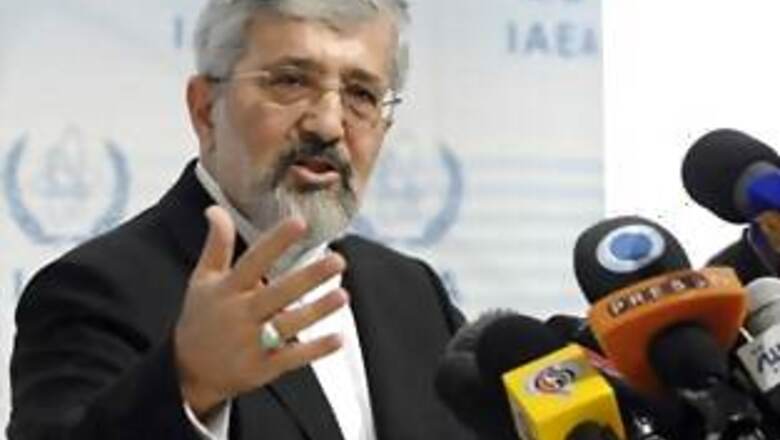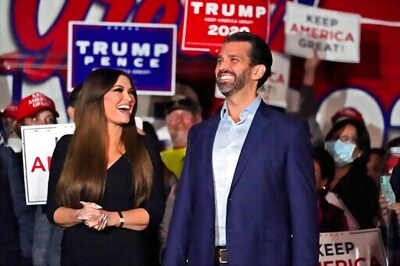
views
Vienna: The UN nuclear agency's board censured Iran on Friday, with 25 nations--including India--backing a resolution that demands Tehran immediately mothball its newly revealed nuclear facility and heed UN Security Council resolutions calling on it to stop uranium enrichment.
Iran remained defiant, with its chief representative to the International Atomic Energy Agency (IAEA) declaring that his country would resist "pressure, resolutions, sanction(s) and threat of military attack."
The resolution--and the resulting vote of the IAEA's 35-nation decision-making board--were significant on several counts.
The resolution was endorsed by six world powers--the US, Russia, China, Britain, France and Germany--reflecting a rare measure of unity on Iran. Moscow and Beijing have acted as a traditional drag on efforts to punish Iran for its nuclear defiance, either preventing new Security Council sanctions or watering down their potency.
They did not formally endorse the last IAEA resolution in 2006, which referred Iran to the Security Council, starting the process that has resulted in three sets of sanctions on the Islamic Republic. Their backing for the document at the Vienna meeting thus reflected broad international disenchantment with Tehran.
It also appeared to signal possible support for any new Western push for a fourth set of UN sanctions, should Tehran continue shunning international overtures meant to reach agreements that reduce concerns about its nuclear ambitions.
Strong backing for the resolution at the meeting was also notable. Only three nations--Cuba, Venezuela and Malaysia --voted against the document, with five abstentions and one member absent.
That meant even most nonaligned IAEA board members abandoned Tehran, despite their traditional backing of the Islamic Republic.
The diplomats who reported the vote spoke on condition of anonymity Friday because of the sensitivity of the situation.
Iran argues that attacks on its nuclear program are an assault on the rights of developing nations to create their own peaceful nuclear energy network. The United States and other nations believe Iran's nuclear program has the goal of creating nuclear weapons.
The IAEA resolution criticized Iran for defying a U.N. Security Council ban on uranium enrichment--the source of both nuclear fuel and the fissile core of warheads.
It also censured Iran for secretly building a uranium enrichment facility and demanded that it immediately suspend further construction. It noted that IAEA chief Mohamed ElBaradei cannot confirm that Tehran's nuclear program is exclusively geared toward peaceful uses, and expressed "serious concern" that Iranian stonewalling of an IAEA probe means "the possibility of military dimensions to Iran's nuclear program" cannot be excluded.
Ali Asghar Soltanieh, Iran's chief delegate to the IAEA, shrugged off the vote.
"Neither resolutions of the board of governors nor those of the United Nations Security Council ... neither sanctions nor the treat of military attacks, can interrupt peaceful nuclear activities in Iran, even a second," he told the closed meeting, in remarks made available to reporters.



















Comments
0 comment